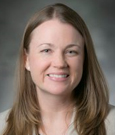
Asifa Akhtar
Max Planck Institute of Immunobiology and Epigenetics
Germany
EMBO | EMBL Symposium
EMBO and EMBL are committed to sharing research advances and sustaining scientific interaction throughout the coronavirus pandemic. We are delighted to announce that this conference is going virtual and invite you to join us online.
This symposium will explore the diverse, dynamic and multifaceted roles of RNA across a spectrum of cellular processes. It will provide an interdisciplinary discussion of the roles of non-coding RNAs in both prokaryotes and eukaryotes, with the aim of enhancing our understanding of gene regulation and function.
In the 50 years since RNA was identified as a central component in the flow of genetic information, it has become increasingly clear that RNA performs many additional diverse and interesting functions. Regulatory RNAs are known to play central roles across numerous biological processes required for cell viability and function. Moreover, prokaryotic and eukaryotic genomes are pervasively transcribed to generate many additional RNAs with unknown functions, raising the question: What else does RNA do?
“The symposium was INCREDIBLY good! It was almost perfect, well organised, and with excellent chosen speakers. It provided lot of opportunities to learn, discuss, share, and network among young and expert scientists. I would be happy to join again any time possible.” – Monah Abou Alezz (Institute of Molecular Genetics L.L. Cavalli-Sforza – National Research Council, Pavia, Italy)

Max Planck Institute of Immunobiology and Epigenetics
Germany

UT Southwestern Medical Center
USA

University of Trento
Italy

Stanford University
USA

John Innes Centre
UK

University Hospital Freiburg
Germany

Duke University
USA

University of California, Berkeley
USA

Cornell University
USA

University of Regensburg
Germany

Friedrich Schiller University of Jena
Germany

University of Geneva
Switzerland

UCLA School of Medicine
USA

Tel Aviv University
Israel

Weizmann Institute of Science
Israel

Masaryk University
Czech Republic

National Institutes of Health
USA

Sapienza University of Rome
Italy

Seoul National University and Institute for Basic Science
South Korea

National Institutes of Health
USA

EMBL Heidelberg
Germany

EMBL Heidelberg
Germany
All times in the programme below are shown as the time in Europe/Berlin.
To find out the equivalent time zone in your location, enter Berlin, the programme time and date along with your city into the Time Zone Converter.
Got something to say? Tweet it #EESNoncoding
| Time (Europe/Berlin) | Speaker |
|---|---|
| 14:00-14:10 | Opening remarks by V. Narry Kim AVAILABLE ON DEMAND AFTER LIVE STREAM |
| 14:10-16:40 | Session 1 – Functions and mechanisms of small RNAs Session chairs: Narry Kim and Marie-Laure Baudet |
| 14:10-14:35 | ncRNAs: a non-canonical mode of intracellular transport through organelle hitchhiking Marie-Laure Baudet – University of Trento, Italy |
| 14:35-15:00 | C.elegans Parental Experiences Regulate a Critical Decision Made by the Progeny Oded Rechavi – Tel Aviv University, Israel AVAILABLE ON DEMAND AFTER LIVE STREAM |
| 15:00-15:15 | The SHAPE of human primary microRNAs Seungchan Baek – Seoul National University, South Korea AVAILABLE ON DEMAND AFTER LIVE STREAM |
| 15:15-15:30 | Break |
| 15:30-15:45 | A SUMO-dependent regulatory switch connects the piRNA pathway to the heterochromatin machinery in Drosophila Changwei Yu – Institute of Molecular Biotechnology IMBA, Vienna AVAILABLE ON DEMAND AFTER LIVE STREAM |
| 15:45-16:00 | Cellular abundance shapes function in piRNA-guided genome defense Astrid Haase – National Institute of Diabetes and Digestive and Kidney Diseases/National Institutes of Health, USA AVAILABLE ON DEMAND AFTER LIVE STREAM |
| 16:00-16:25 | From Strings of Nucleotides to Collective Behaviors: Lessons from Bacteria Kai Papenfort – Friedrich Schiller University of Jena, Germany AVAILABLE ON DEMAND AFTER LIVE STREAM |
| 16:25-16:50 | Genome regulation by long noncoding rnas Howard Y. Chang – Stanford University, USA AVAILABLE ON DEMAND AFTER LIVE STREAM |
| 16:50-17:20 | Meet the speakers from Session 1 in Zoom rooms with: Marie-Laure Baudet, Oded Rechavi, Seungchan Baek, Changwei Yu, Astrid Haase, Kai Papenfort and Howard Y. Chang |
| 17:20-18:20 | Poster session 1 (live chats and video calls with poster presenters with last names A-F) |
| 18:20-19:15 | Session 2 – RNA granules and localization Session chairs: Marie-Laure Baudet and Gisela Storz |
| 18:20-19:00 | Keynote Lecture: Regulation and function of noncoding RNAs: the NORAD-Pumilio pathway as exemplar Joshua Mendell – UT Southwestern Medical Center, USA AVAILABLE ON DEMAND AFTER LIVE STREAM |
| 19:00-19:25 | Protein gradients and X-inactivation by the lncRNA Xist Kathrin Plath – UCLA School of Medicine, USA |
| 19:25-19:40 | In situ 3’UTR cleavage of transcripts localized in sympathetic neuron axons Catia Andreassi – University College London, UK AVAILABLE ON DEMAND AFTER LIVE STREAM |
| 19:40-19:55 | Unraveling the interplay between Nuclear Exosome targeting and Functional 3D chromatin looping Olivier Cuvier- CNRS, France |
| 19:55 – 20:25 | Meet the speakers from Session 2 in Zoom rooms with: Joshua Mendell, Kathrin Plath, Catia Andreassi and Olivier Cuvier |
| 20:25 – 21:10 | Social programme: speed networking |
| Time (Europe/Berlin) | Speaker |
|---|---|
| 14:00-16:50 | Session 3 – Long non-coding RNAs and circular RNAs Session chairs: Igor Ulitsky and Gunter Meister |
| 14:00-14:40 | Keynote Lecture: Dosage compensation of the X chromosome: An epigenetic phenomenon involving chromatin regulators and long non-coding RNAs Asifa Akhtar – Max Planck Institute of Immunobiology and Epigenetics, Germany AVAILABLE ON DEMAND AFTER LIVE STREAM |
| 14:40-15:05 | The complexity of COOLAIR Caroline Dean – John Innes Centre, UK AVAILABLE ON DEMAND AFTER LIVE STREAM |
| 15:05-15:20 | MIR-NATs aid proteostasis in neurodegeneration Roberto Simone – University College London, UK |
| 15:20-15:35 | Break |
| 15:35-15:50 | Distinct structural domains of MUNC lncRNA regulate gene expression during myogenesis Roza Przanowska – University of Virginia, USA AVAILABLE ON DEMAND AFTER LIVE STREAM |
| 15:50-16:15 | Transposons: Friends or foes in preimplantation embryos? Lin He – University of California, Berkeley, USA AVAILABLE ON DEMAND AFTER LIVE STREAM |
| 16:15-16:40 | Non-coding RNA & RNA-dependent Proteins in Cancer Sven Diederichs – University Hospital Freiburg, Germany AVAILABLE ON DEMAND AFTER LIVE STREAM |
| 16:40-17:10 | Meet the speakers Session 3 in Zoom rooms with: Asifa Akhtar, Caroline Dean, Roberto Simone, Roza Przanowska, Lin He and Sven Diederichs |
| 17:10-18:10 | Poster session 2 (live chats and video calls with poster presenters with last names G-O) |
| 18:10-19:30 | Session 4 – Other types of small RNAs Session chairs: Kathrin Plath and Irene Bozzoni |
| 18:10-18:35 | Damaged tRNAs as signaling molecules Sandra L. Wolin – National Institutes of Health, USA AVAILABLE ON DEMAND AFTER LIVE STREAM |
| 18:35-19:00 | A tRNA sensor for balancing mitochondrial translation Gunter Meister – University of Regensburg, Germany AVAILABLE ON DEMAND AFTER LIVE STREAM |
| 19:00-19:15 | New group of bacterial Argonaute proteins with RNA target specificity Daria Esyunina – Institute of Molecular Genetics, National Research Centre “Kurchatov Institute”, Russia AVAILABLE ON DEMAND AFTER LIVE STREAM |
| 19:15-19:30 | Oxygen-induced small RNA FoxI provides the noncoding arm of the Sigma E response of the cancer-associated Fusobacterium nucleatum Falk Ponath – Helmholtz Institute for RNA-based Infection Research (HIRI), Germany |
| 19:30-20:00 | Meet the speakers from Session 4 in Zoom rooms with: Sandra L. Wolin, Gunter Meister, Daria Esyunina and Falk Ponath |
| 20:00-20:15 | Social programme: bar mixer |
| Time (Europe/Berlin) | Speaker |
|---|---|
| 13:00-14:00 | Poster session 3 (live chats and video calls with poster presenters with last names P-Z) |
| 14:00-16:35 | Session 5 – RNA modification Session chairs: Irene Bozzoni and Sandra L. Wolin |
| 14:00-14:25 | The secret life of 5’ mRNA fragments Štěpánka Vaňáčová – Masaryk University, Czech Republic |
| 14:25-14:40 | Interaction of lincrna LENOX with the gtpase RAP2C promotes oxidative phosphorylation, melanoma cell survival and resistance to BRAF inhibition Giovanni Gambi – Institute of Genetics and Molecular and Cellular Biology, France |
| 14:40-14:55 | Intergenerational hormesis is regulated by heritable 18S rRNA methylation Eric Greer – Harvard Medical School/Boston Children’s Hospital, USA AVAILABLE ON DEMAND AFTER LIVE STREAM |
| 14:55-15:10 | Break |
| 15:10-15:25 | A single m6A site is an antimorph switch for a cancer-associated lncRNA Aaron Johnson – University of Colorado School of Medicine United States of America AVAILABLE ON DEMAND AFTER LIVE STREAM |
| 15:25-15:50 | Gene regulation by RNA modifications Ramesh Pillai – University of Geneva, Switzerland |
| 15:50-16:15 | Regulation of RNA biology and cap methylations by juxtacap sequences Samie Jaffrey – Cornell University, USA |
| 16:15-16:45 | Meet the speakers Session 5 in Zoom rooms with: Štěpánka Vaňáčová, Giovanni Gambi, Eric Greer, Aaron Johnson, Ramesh Pillai and Samie Jaffrey |
| 16:45-18:35 | Session 6 – Viral RNAs and immunity and RNA therapeutics Session chairs: Štěpánka Vaňáčová and Gisela Storz |
| 16:45-17:10 | Translational Remodeling by SARS-CoV-2 Infection Noam Stern-Ginossar – Weizmann Institute of Science, Israel AVAILABLE ON DEMAND AFTER LIVE STREAM |
| 17:10-17:35 | Fundamental approaches to targeting noncoding RNAs with small molecules Amanda Hargrove – Duke University, USA AVAILABLE ON DEMAND AFTER LIVE STREAM |
| 17:35-17:50 | Artificial circular RNA sponges as a novel RNA therapeutic for molecular biology and medicine Oliver Rossbach – University of Giessen, Germany AVAILABLE ON DEMAND AFTER LIVE STREAM |
| 17:50-18:05 | Prediction and pan-cancer analysis of mammalian transcripts involved in target directed miRNA degradation Francesco Nicassio – Italian Institute of Technology, Italy AVAILABLE ON DEMAND AFTER LIVE STREAM |
| 18:05-18:15 | Closing remarks by Gisela Storz AVAILABLE ON DEMAND AFTER LIVE STREAM |
| 18:15-18:45 | Meet the speakers from Session 6 in Zoom rooms with: Noam Stern-Ginossar, Amanda Hargrove, Oliver Rossbach and Francesco Nicassio |
Registration Fees (include access to all of the talks, digital poster sessions and online group discussions, and help us cover our costs to run the event. For further information please refer to the FAQ page):
| Academia | 190 Euro |
| PhD Student | 140 Euro |
| Industry | 240 Euro |
| EMBL Staff | Intranet access |
Accredited journalists may be eligible to register for a complimentary registration. Registrants may be required to provide accreditation or equivalent proof of press membership after registration. Please contact Maryann Heck for more information.
Registration will be on a first-come first-served basis. Your place can only be confirmed after payment of the registration fee.
Types of payments accepted are international bank transfers and credit card payments.
Only registered participants are eligible to submit an abstract. We only accept online abstract submissions.
After you have logged in and successfully registered, you will receive an email asking you to submit your abstract. Click on the link provided and enter your abstract in the text box provided. Alternatively you can submit your abstract by clicking on the link on the confirmation page directly after registering.
When submitting your abstract you can also apply for an oral or poster presentation. A selection process will take place with the results announced 2-3 weeks after the abstract submission deadline.
Registration Fee Waivers
All academic and student registrants are invited to apply for a registration fee waiver, provided by the EMBL Advanced Training Centre Corporate Partnership Programme and EMBO. The registration fee waiver covers the registration sum that you have paid to attend the meeting. Conference participants are not required to pre-pay the registration fee to be selected for a fee waiver for a virtual meeting. If you have already paid the registration fee and are awarded a fee waiver, it will be reimbursed after the meeting. Course participants are required to pay the course fee in advance, which will then be reimbursed after the recipient has attended the course.
For participants and speakers with childcare responsibilities there is the possibility to apply for a grant, provided by the EMBL Advanced Training Centre Corporate Partnership Programme and EMBO, to offset childcare costs incurred when participating at a virtual event. Eligible costs include fees for a babysitter or childcare facility or travel costs for a care giver. Please note that priority will be given to early stage researchers. Costs will be reimbursed after the meeting only once a reimbursement form and original receipts have been received. In order to apply for this grant, you must be registered by the abstract submission deadline.
Applies to selected courses only. Availability will be indicated during the abstract or motivation letter submission process.
This grant covers costs related to your attendance to the course (registration, travel and accommodation costs). The grant is restricted to PhD students and postdocs who conduct basic biomedical research.
Whether you are eligible to apply for a travel grant, depends on when you received your university entrance qualification (e.g. Abitur, A-Levels, High School Diploma, Final State Examination):
– for PhD and MD students, as well as graduates, the university entrance qualification must not have been obtained more than 11 years ago at the time of the envisaged course
– for postdocs, the university entrance qualification must not have been obtained more than 13 years ago at the time of the envisaged course
Applications for financial assistance can be submitted via the submission portal* (for the submission of abstracts for conferences or the submission of motivation letters for courses) by completing the Financial Assistance Application Section (underneath the section for entering abstract/motivation letter information). The link to the portal can be found in the registration confirmation email that you will receive after registering for the conference or course.
For conferences, if you are not submitting an abstract, you can still apply for financial assistance in the submission portal. Read the instructions on how to apply for financial assistance.
Note that priority will be given to those submitting an abstract to present at the conference. In your application you will be asked to answer questions regarding your motivation for applying, and, for registration fee waivers, the reasons why your lab cannot fund your attendance and how your attendance will make a difference to your career. Application for financial support will not affect the outcome of your registration application.
*For some events, applications for Childcare Grants will still be done by email. Information about the grant will be sent out shortly after the abstract/motivation letter deadline. Please contact the event Conference Officer if you have any questions.
The scientific organisers will select the recipients of registration fee waivers during the abstract selection process for conferences and the participant selection process for courses. Results will be announced approximately 3 – 4 weeks before the event start date. Selection results do not impact your admission to the meeting. Registration fee waiver selection is based on your current work or study location, your motivation for applying, the reasons for needing financial support and the impact this event will have on your career. Childcare grants are allocated based on career stage, with priority given to early stage researchers.
Check out this list of external funding opportunities or get more information on attending the conference as an event reporter.
For further information about financial assistance please refer to the FAQ page.
Please do:
Please don’t:
Additional information can be found in our Code of Conduct.
It is important to stay healthy and move around, especially when you are attending an event virtually. We have put together a few coffee break stretches and yoga videos in the events Slack workspace for you to enjoy during the event.
Questions during and after the talks can be asked in live streaming platform. The chair moderates the questions and shares them with the speaker. If time runs out or you think of a question later, you can use Slack to ask your questions in the dedicated session channels or via direct message.
The programme is planned based on Central European Summer Time (CEST), unless otherwise stated. As many virtual participants are attending from around the world, we do our best to accomodate as many timezones as possible when creating the programme. Please take your time zone into consideration when planning your attendance.
We are using a virtual event platform for this conference. More information about the platform will be shared ahead of the conference.
Media Partners:
EMBO Journal, an EMBO Press journal
International Union of Biochemistry and Molecular Biology
Open Biology, a Royal Society journal
Sponsorship Opportunities
We offer a variety of event sponsoring possibilities, with the flexibility to select a set sponsorship package or combine individual sponsorship options to suit your event budget. Discounts are available for companies sponsoring multiple events at EMBL Heidelberg. View other conferences, or contact sponsorship@embl.de for further information.
If you are interested in becoming a media partner of this event, please visit our media partnerships webpage.
EMBL wishes to warn sponsors of EMBL conferences and courses of fraudulent schemes purporting to offer sponsorship opportunities on behalf of EMBL or affiliated with EMBL officials. One current scam campaign of which we are aware is conducted using the name ‘Judy Eastman’ (judy@gopcontact.a2hosted.com) and entails approaches to sponsors offering sponsorship opportunities on EMBL’s behalf. Please be kindly advised that all relevant communication regarding sponsorship of EMBL conferences, symposia and courses is handled by EMBL directly and is sent from an official EMBL account. EMBL does not work with any external providers on sponsorship acquisition.
Please also note that:
Suspicious communications purportedly from, for or on behalf of EMBL should be reported to EMBL at the following email address sponsoring@embl.de.
EMBO | EMBL Symposia promote scientific communication and collaboration in the European research area. They provide scientists with a platform to discuss and exchange ideas on forward-looking topics and new developments in the life sciences.
Topics emphasise upcoming developments and the interdisciplinary nature of related fields. Jointly funded and organised by EMBO and EMBL – and complementary to their respective courses, workshops, and conference programmes – the symposia promote scientific communication and collaboration.
All symposia are held in the EMBL Advanced Training Centre (ATC) in Heidelberg, Germany, or virtually.
Date: 13 - 15 Oct 2021
Location: Virtual
Deadline(s):
Abstract submission: Closed
Registration: Closed
Organisers:
Contact: Maryann Heck